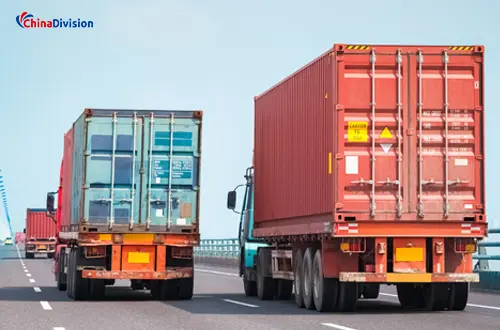Accessorial Charges: How to Avoid or Reduce Expenses
Table of Contents
Have you ever encountered seemingly inadvertent freight Accessorial Charges that have left you confused about freight costs? The uncertainty of these additional charges has led to budget overruns, inadvertently increasing your shipping costs and affecting the operational efficiency of your business. So how can you avoid or reduce surcharges to make your logistics process more transparent and efficient? In this blog, we will take a deep dive into the world of surcharges, their causes, common types, and strategies to minimize them.

What are Accessorial Charges?
Also known as freight surcharges or shipping surcharges, Accessorial Charges are additional charges incurred for specific services or conditions in addition to the standard shipping charges for additional transportation services required to complete the delivery. These services are considered value-added services and are necessary to meet specific needs or circumstances during the transportation process.
Supplementary charges may include, but are not limited to: fuel surcharges, loading and unloading fees, storage fees, handling fees, packaging fees, customs duties and other value-added services. Although they may seem trivial, they can have a significant impact on your shipping costs when accumulated.
Why do freight surcharges occur?
Extra Distance and Time
Sometimes freight takes longer to reach its destination, or even requires additional stops, which can add surcharges.
Special Handling or Equipment
Some freight requires special handling or equipment, such as a docking station for facilities that don't have one.
Special Permits and Escorts
Freight that exceeds legal dimensions or weights may require special permits, which can also add surcharges.
Fuel Costs
Fuel price fluctuations directly impact transportation costs, causing carriers to implement fuel surcharges to offset these costs.
Labor Shortages
The trucking industry faces a significant shortage of qualified drivers, resulting in increased labor costs and surcharges to maintain service levels.
Operational Complexity
Residential deliveries, oversized or undeliverable packages, and special handling requirements can all increase a carrier's operating costs, necessitating surcharges.
Peak Seasons
During periods of high demand, such as the holidays, carriers impose peak season surcharges to manage capacity and ensure timely delivery.
Shipping surcharges can be imposed for a variety of reasons, including special handling of freight, such as refrigeration or hazardous materials handling, or because of special requirements at the delivery location, such as remote area deliveries or delivery within a specific time frame. In addition, unforeseen factors, such as weather changes or traffic delays, may also result in additional costs. In addition, some external factors, such as oil price fluctuations, may also result in fuel surcharges.
The right medicine for the problem: How to reduce freight surcharges?
Reasonable planning of transportation routes
Choosing the most economical and fastest transportation routes can reduce transportation time and costs, thereby reducing freight surcharges. Plan ahead to avoid emergency transportation needs to reduce expedited fees. Consider using a carrier that provides residential delivery services without surcharges, or explore other delivery options, such as FedEx SmartPost or UPS SurePost, to use USPS for last-mile delivery.
Accurately estimate the volume and weight of the goods
Avoid incurring additional handling or storage fees due to the volume or weight of the goods exceeding expectations.
Optimize packaging
Using appropriate packaging materials and methods to reduce volume and weight can reduce packaging costs and the risk of damage during transportation.
Timely customs declaration
Complying with customs regulations and preparing relevant documents and information in advance can speed up customs clearance and reduce customs taxes and fees.
Take advantage of value-added services
While some value-added services such as cargo tracking, insurance, etc. incur additional costs, they can also improve logistics efficiency and security, thereby reducing overall risk costs.
Oversized package surcharges
Packages that exceed the size or weight limits set by the carrier are subject to oversized package surcharges because they require special handling and equipment. Optimize your packaging to minimize size and weight, and if you frequently ship oversized packages, consider negotiating rates with your carrier.
Peak Season Surcharges
During periods of high demand such as holidays, carriers impose peak season surcharges to manage capacity and ensure timely delivery. Plan ahead and adjust your shipping strategy during peak seasons, such as offering earlier order deadlines or exploring alternative carriers with more favorable peak season prices.
Partner with Chinadivision for professional freight solutions
Faced with complex accessory charges, companies need a reliable and professional logistics partner. As a freight service provider by your side, ChinaDivision is committed to providing customers with efficient, transparent and economical logistics services to ensure that your goods reach their destination safely and efficiently while controlling and reducing transportation costs. At the same time, we also provide a series of value-added services, such as cargo tracking, insurance, etc., to make your logistics process more secure and worry-free.
Contact ChinaDivision now and let us help you manage freight surcharges and optimize your logistics costs.





